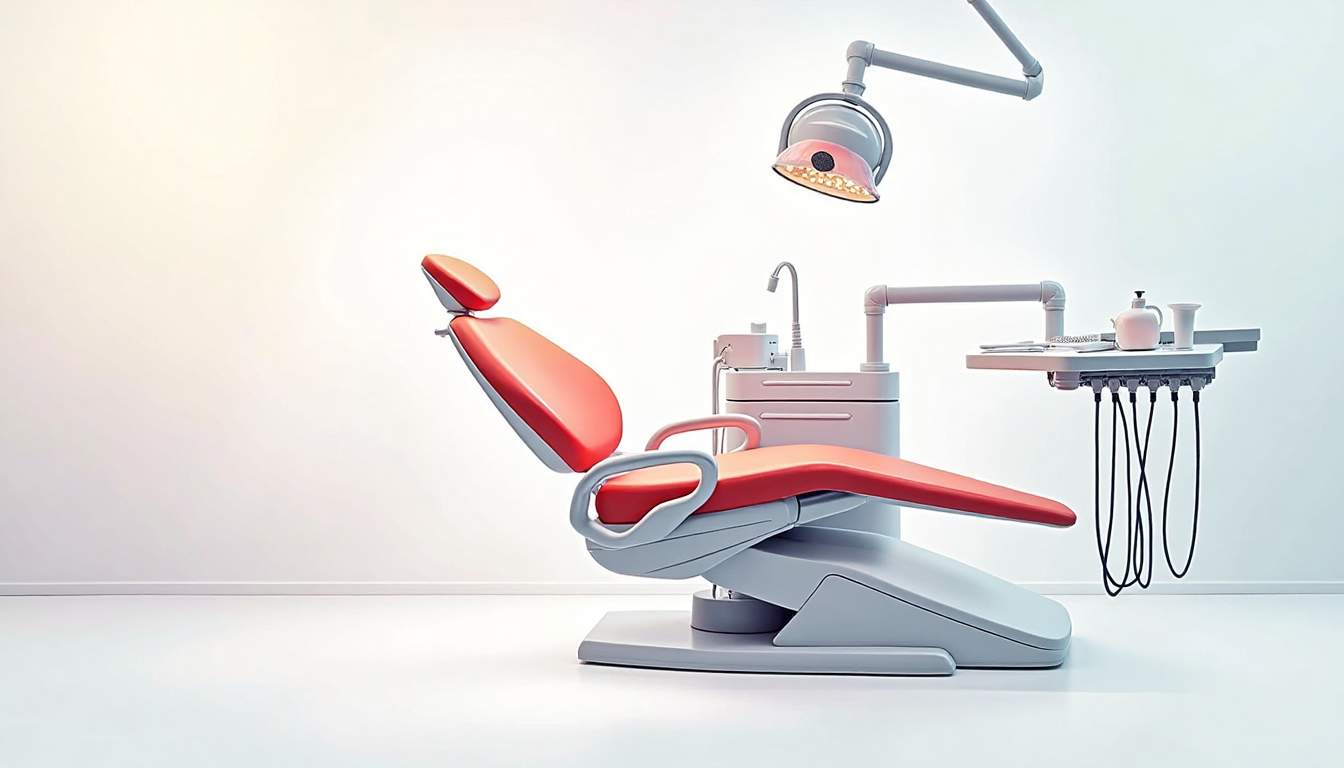
For many individuals, the journey to adulthood is marked by the emergence of wisdom teeth. These third molars, typically appearing between the ages of 17 and 25, can often lead to various dental issues. As such, wisdom teeth removal has become a common procedure. Understanding the importance of safe and professional extraction can significantly ease the anxiety surrounding this dental surgery.
Understanding Wisdom Teeth
Wisdom teeth, or third molars, are the last set of molars that most people develop. While some individuals may find that their wisdom teeth grow in without any complications, others experience pain, crowding, or infection. This can necessitate their removal.

The Evolutionary Perspective
From an evolutionary standpoint, wisdom teeth were beneficial for our ancestors, who had a diet consisting of rougher foods that required more chewing. As human diets have evolved and become softer, the need for these extra molars has diminished. Consequently, many people now have jaws that are too small to accommodate these teeth, leading to various dental issues.
Common Issues Associated with Wisdom Teeth
When wisdom teeth do not have enough space to emerge properly, they can become impacted. This means they are trapped beneath the gum line, which can lead to pain, swelling, and infection. Other common issues include:
- Crowding: Wisdom teeth can push against adjacent teeth, causing misalignment.
- Cysts: Impacted wisdom teeth can lead to the formation of cysts, which can damage surrounding teeth and bone.
- Decay: Partially erupted wisdom teeth can create pockets that trap food and bacteria, increasing the risk of decay and gum disease.
In addition to these issues, the age at which wisdom teeth emerge can vary significantly from person to person, typically appearing between the ages of 17 and 25. This variability can lead to different experiences with pain and discomfort. Some individuals may notice their wisdom teeth coming in without any noticeable symptoms, while others may experience significant discomfort that requires dental intervention. Regular dental check-ups are crucial during this period, as dentists can monitor the development of wisdom teeth and recommend removal if necessary to prevent complications. To ensure you’re receiving the best care during this time, consider a visit to Kellyville Dentist, where we provide personalized dental care for all ages and high-quality treatments to keep your family’s smiles healthy and bright.
Signs You May Need to See a Dentist
Recognizing the signs that your wisdom teeth might be causing problems is essential for maintaining oral health. Symptoms such as persistent jaw pain, swelling around the gums, or difficulty opening your mouth can indicate that your wisdom teeth are impacted or causing other issues. Additionally, if you notice bad breath that doesn’t improve with regular dental hygiene, it could be a sign of infection associated with your wisdom teeth. Early intervention can help prevent more severe complications, making it important to consult with a dental professional if you experience any of these symptoms.
The Importance of Professional Extraction
When it comes to wisdom teeth removal, opting for a professional is crucial. Dentists and oral surgeons are trained to handle the complexities associated with this procedure, ensuring both safety and effectiveness. The removal of wisdom teeth, often referred to as third molars, is a common dental procedure, but it can vary significantly in complexity depending on the position of the teeth and the individual’s dental health. This is why having a skilled professional is not just a recommendation, but a necessity.

Benefits of Professional Care
Choosing a qualified dental professional for wisdom teeth extraction provides numerous benefits:
- Expertise: Dental professionals possess the knowledge and skills required to assess the situation accurately and decide on the best course of action.
- Minimized Risks: Professional extraction reduces the risks of complications, such as excessive bleeding or infection.
- Post-Operative Care: A professional will provide guidance on post-operative care, ensuring a smoother recovery process.
Additionally, professionals are equipped with advanced tools and technology that enhance the precision of the extraction. For instance, imaging techniques like X-rays allow the dentist to visualize the roots of the wisdom teeth and their proximity to nerves and other structures, which can significantly impact the extraction process. This level of detail helps in planning the procedure meticulously, thereby increasing the chances of a successful outcome and minimizing discomfort for the patient.
Choosing the Right Dental Professional
Finding the right dentist or oral surgeon for wisdom teeth removal is essential. Consider the following factors:
- Experience: Look for a professional with extensive experience in wisdom teeth extractions.
- Reviews: Check patient reviews and testimonials to gauge the quality of care provided.
- Consultation: Schedule a consultation to discuss concerns, ask questions, and evaluate comfort levels with the professional.
Moreover, it’s beneficial to inquire about the professional’s approach to pain management and sedation options. Understanding how they handle discomfort during and after the procedure can provide peace of mind. Some patients may prefer local anesthesia, while others might opt for sedation to help ease anxiety. A good dental professional will tailor their approach based on the patient’s needs and preferences, ensuring a more personalized and comfortable experience throughout the extraction process.
The Extraction Process
Understanding what to expect during the wisdom teeth extraction process can alleviate anxiety. The procedure typically involves several key steps.
Initial Consultation
The journey begins with an initial consultation, where the dentist will evaluate the position of the wisdom teeth through X-rays. This assessment helps determine whether extraction is necessary and what type of anesthesia will be used. During this visit, the dentist will also discuss the patient’s medical history, any medications they are currently taking, and any previous dental experiences that may influence the procedure. This thorough approach ensures that the extraction is tailored to the individual’s needs and comfort level, setting the stage for a smoother experience.
The Procedure
On the day of the extraction, patients will be given anesthesia to ensure comfort throughout the procedure. Depending on the complexity of the extraction, the dentist may use local anesthesia, sedation, or general anesthesia. The extraction itself typically involves:
- Making an incision in the gum tissue to expose the tooth.
- Removing any bone that may be blocking access to the tooth.
- Extracting the tooth, often in pieces if it is impacted.
- Cleaning the site of the extracted tooth and stitching the gum tissue if necessary.
After the extraction, patients will be monitored for a short period to ensure they are recovering well from the anesthesia. It’s common to experience some swelling and discomfort, which can be managed with prescribed pain relief and ice packs. The dentist will provide detailed aftercare instructions, which may include dietary recommendations and guidelines for oral hygiene. Following these instructions is crucial for a smooth recovery, as it helps minimize the risk of complications such as dry socket, an uncomfortable condition that can occur if the blood clot at the extraction site becomes dislodged. Patients are encouraged to reach out to their dentist with any concerns during the recovery period, ensuring they feel supported as they heal.
Recovery After Extraction
After the extraction, recovery is a crucial phase that requires attention to ensure proper healing. While the recovery process can vary from person to person, there are general guidelines to follow.
Post-Operative Care
Following the extraction, patients will receive specific post-operative care instructions. These may include:
- Rest: It is essential to rest and avoid strenuous activities for at least 24 hours.
- Ice Packs: Applying ice packs to the cheeks can help reduce swelling.
- Soft Foods: Eating soft foods like yogurt, applesauce, and mashed potatoes can aid in recovery.
Managing Discomfort
Some discomfort is expected after the procedure. Over-the-counter pain relievers or prescribed medications can help manage pain effectively. Additionally, following the dentist’s instructions regarding medication is vital for a smooth recovery.
Potential Complications
While wisdom teeth removal is generally a safe procedure, there are potential complications that patients should be aware of. Understanding these risks can help in recognizing when to seek further medical attention.
Common Complications
Some of the most common complications associated with wisdom teeth extraction include:
- Dry Socket: This occurs when the blood clot that forms in the extraction site becomes dislodged, leading to pain and delayed healing.
- Infection: Post-operative infections can occur if bacteria enter the extraction site, leading to increased pain and swelling.
- Nerve Damage: In rare cases, the extraction can cause damage to nearby nerves, resulting in numbness or tingling.
Recognizing Complications
It is crucial for patients to monitor their recovery and be aware of signs that may indicate complications. Symptoms such as severe pain, persistent swelling, or fever should prompt immediate contact with the dental professional.
Long-Term Considerations
After the wisdom teeth have been removed and the recovery is complete, it’s essential to consider long-term dental health. Regular check-ups and maintaining good oral hygiene can prevent future dental issues.
Maintaining Oral Health
To ensure optimal oral health after wisdom teeth removal, individuals should:
- Brush and Floss Regularly: Maintaining a consistent oral hygiene routine helps prevent cavities and gum disease.
- Regular Dental Visits: Schedule regular check-ups with a dentist to monitor oral health and address any concerns.
- Healthy Diet: A balanced diet rich in vitamins and minerals supports overall dental health.
Monitoring Changes
It is also essential to monitor any changes in the mouth, such as shifting teeth or discomfort. If any concerns arise, consulting a dentist promptly can help address issues before they escalate.
Conclusion
Wisdom teeth removal is a common yet significant dental procedure that can prevent various complications associated with these third molars. By understanding the importance of safe and professional extraction, individuals can approach the process with confidence. From the initial consultation to post-operative care, having a qualified dental professional guide the way ensures a smoother experience.

Ultimately, prioritizing oral health and seeking timely dental care can lead to a healthier smile and a more comfortable future. Whether facing the extraction of wisdom teeth or maintaining overall dental hygiene, knowledge and professional support are invaluable assets on the journey to optimal oral health.